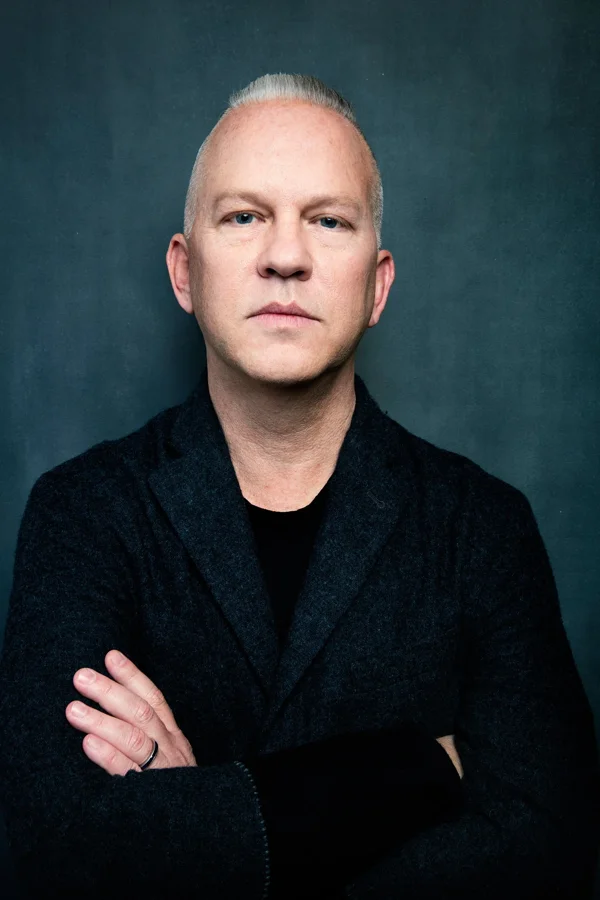Osgood Perkins, son of Anthony Perkins, strongly criticized Ryan Murphy’s series Monster: The Ed Gein Story for its portrayal of his late father, expressing disapproval shortly after the show’s third season premiered earlier this month. The Ryan Murphy Monster Controversy centers on the creative liberties the series took with Anthony Perkins’ character and the broader handling of true crime narratives.
Osgood Perkins Voices Frustration Over Series’ Portrayal of His Father
Osgood Perkins, 51, spoke to TMZ on October 23, revealing he had not watched the third season of Monster and stating he
wouldn’t watch it with a 10-foot pole.
His reservations revolve around how the show depicted his father, played by Joey Pollari, particularly in relation to the film Psycho, which was inspired by Ed Gein’s crimes. Osgood expressed concern about how true crime is being transformed on screen, describing it as becoming “glamorous and meaningful content” shaped by powerful influences. He warned that many scripted shows, including Monster, are
increasingly devoid of context and that the Netflix-ization of real pain is playing for the wrong team.
Season 3 Examines Ed Gein’s Impact on Horror Films and True Crime
The latest season of Monster traces how the crimes of Ed Gein inspired iconic movies such as The Texas Chain Saw Massacre and Alfred Hitchcock’s Psycho. Throughout the series, there is a focus on how Gein’s story affected the evolution of true crime as a popular cultural genre. Anthony Perkins is introduced as a closeted actor grappling with the legacy of his breakthrough role in Psycho, though it is noted that while Anthony’s sexuality was discussed only after his death, he was married from 1973 until his passing in 1992 to Berry Berenson, Osgood’s mother.

Recurring Backlash Over Murphy’s Portrayal of Real-Life Figures
The controversy over Monster’s depiction of Anthony Perkins is part of a wider pattern of criticism directed at Ryan Murphy’s true crime dramatizations. Murphy’s earlier work, including the 2022 series about serial killer Jeffrey Dahmer starring Evan Peters, faced harsh response from victims’ families. Murphy has stated that he and his team contacted more than 20 relatives and friends of Dahmer’s victims during extensive research, but
not a single person responded to us in that process.
He maintained that the Dahmer series sought to confront underlying issues of racism and homophobia tied to the case, underscoring
it was the biggest thing I’ve ever seen that really sort of examines how easy it is to get away with things with the white privilege aspects. What are the rules now? Should we never do a movie about a tyrant?
Erik Menendez Criticizes Murphy’s Portrayal in Season Two
Similar objections arose after Murphy’s depiction of Erik and Lyle Menendez in Season 2, with Erik openly condemning the show for distorting his and his brother’s characters. In a statement posted on Lyle’s Facebook page in September 2024, Erik, now 54, declared,
I believed we had moved beyond the lies and ruinous character portrayals of Lyle, creating a caricature of Lyle rooted in horrible and blatant lies rampant in the show,
adding,
I can only believe they were done so on purpose. It is with a heavy heart that I say, I believe Ryan Murphy cannot be this naive and inaccurate about the facts of our lives so as to do this without bad intent.
Murphy Defends His Work Amid Ongoing Criticism
Despite the recurring backlash, Ryan Murphy has defended his creative choices. He credited Monster with rekindling public interest in the Menendez case, which contributed to the brothers being resentenced to 50 years to life, making them eligible for parole under California’s youthful offender law. Murphy told Variety in October 2024,
We gave them their moment in the court of public opinion,
and added,
Basically, we did give them a platform.
Currently, Monster is available for streaming on Netflix, continuing to provoke debate over the boundaries of true crime storytelling and its impact on those portrayed.
